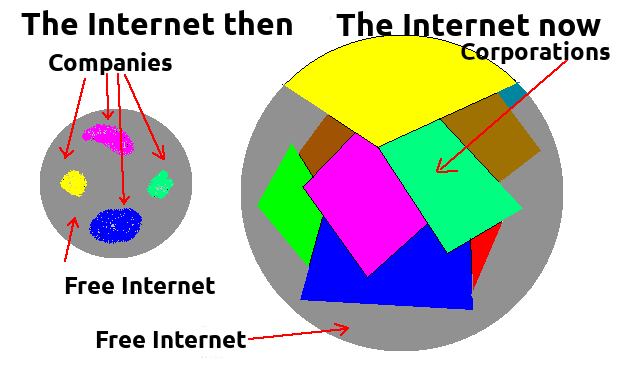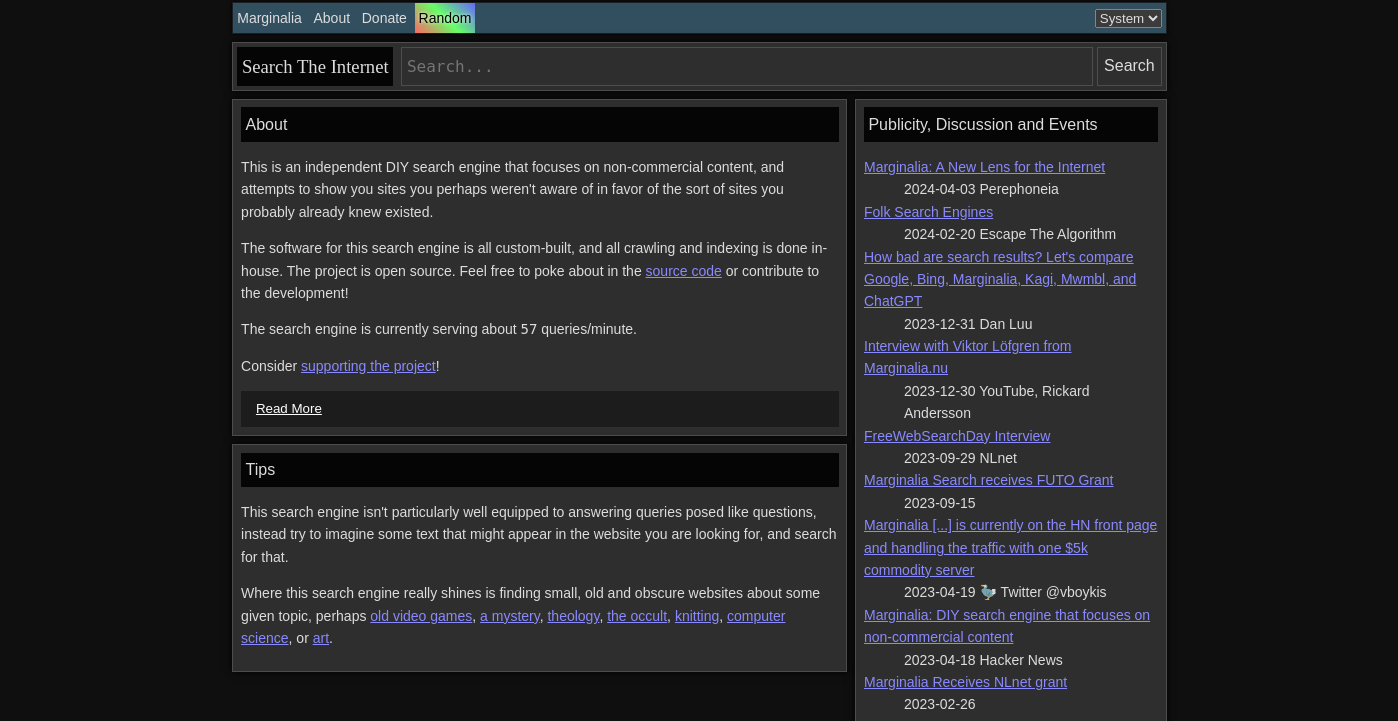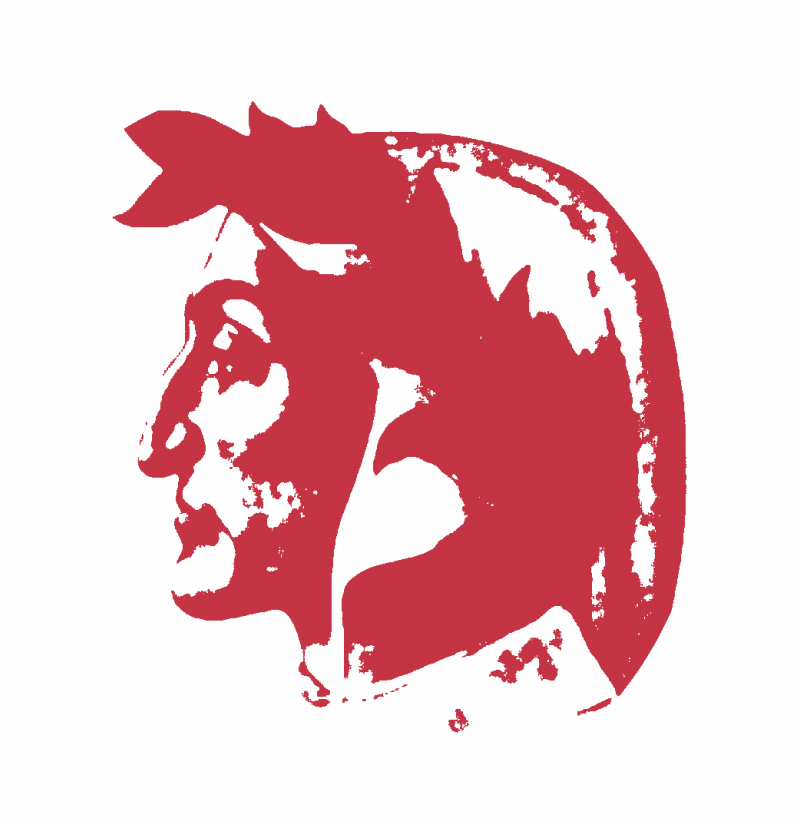The Free Web
Manifesto 2.0

Web Renaissance, Web Revival, Small-Web, Retro Web, Indie Web, Web0, Web 3.0...
What's this all about anyway?
Is it all just nostalgia? Is it about the retro design, the gifs, the bland colors, glitchy pixelated graphics?
Is it about being anti-capitalist —what's Capitalism anyway?—, queer, trans,liking anime or whatever? (I don't care what you do in your bedroom, between consenting adults,or, if you are a teenager, with another teenager, I guess... but do those sites HAVE to be so ugly? Geez, go learn some CSS, people, jk).
Is it about owning your data? Do you really own your data when it's hosted on Neocities, o even when it's hosted on another “private” server that you rent, for that matter?
Is it about expression, freedom, decentralization?
Web1.0 was not exactly user-friendly, you know. It hasn't gotten any harder to own and program your own website, in fact it's gotten a million times easier to rent a server and upload your website, there's a ton of free resources to learn HTML, CSS, Javascript and other technologies to create all kinds of websites, for free, available on the internet, there are static site generators that you can use to drag-and-drop your content on pre-designed themes.
The only thing that may have gotten harder is to host your website on your own server and that's because the internet has grown so much that now ISP companies are using something called a CGNAT, which in layman's terms means that you don't have your own public IP so you don't communicate directly to the open web. But who was even doing that before anyway? Only geeks and tech savvy people.
But in a certain sense it's true that there was more freedom, if you understand that freedom doesn't mean easy, or even accessible, it just means that there are less boundaries.
Let me explain with my own little crappy graphic:

In the olden days of Web1.0 it felt like the internet was a Wild West kind of place, there were proportionally less companies, and more “free internet” websites: personal websites (that doesn't just mean that it's “about me”, it could be a website dedicated to some hobby, or a group, or some topic, but created and maintained by one person or a small group with a common interest), I would also put here many small companies that would create their own website internally, without hiring professional web-design services. There were some big companies, but nowhere near as big as the ones we see now. And another thing is that the boundaries between the company owned internet and the “free” internet felt less rigid, more fuzzy.
In the new internet of Web2.0 it feels like everything is an app or a corporation and also the boundaries are much more solid. In reality, the “free” space is still there, even much larger because guess what, web hosting is also a lucrative business and web hosting companies are making sure that their services are more accessible than ever.
But the reason that it felt so different is because nowadays the vast majority of users inhabit the corporate space almost exclusively, and that is also where Google operates. Whereas in the past more users would inhabit the free an open web, even websites that were the precursors to Web2.0 like MySpace were mostly niche —I only ever knew two or three people who used it—, most of us would just surf the open web and share URLs freely.
By the way, did you know there is a search engine for the small web? It's called Marginalia, check it out.

And the reason that the boundaries feel more rigid is because these huge corporations design their websites so that you don't feel the need to go outside, so you can spend hours on end mindlessly scrolling through their “user generated” content, from one micro-dose of dopamine to the next without even looking outside. They provide a platform for you to create and publish your content —but what about the form? that is also a key topic, there is hardly any customization allowed in those platforms. So you generate the content for their website, make their website grow, they get all the traffic and all your data and you get a little entertainment (and anxiety). Is it actually a free service or are you working for them?
But the open web is still there, it's just... hidden, maybe, more like out of sight.
If it were up to me, I'd like to call this thing “The Free Web”, because that's what it's about in my mind: the freedom and decentralization. And that can perfectly encompass all the other things too, if you want. "Indie Web" is an ok term too, I suppose.
Web 3.0 is cool too, but the truth is that term is a little too appropiated by "crypto bros". The core idea is that it will be decentralized and and enable the user/creator to fully own their own data —that sounds a lot like us— and also be able to have complex applications, payment, video, P2P chat and what not. Blockchain is just one technollogy proposed to enable that.
But here's a bonus question: deep down, are we trying to create something new or to keep something alive? In other words, are we revolutionaries or conservatives? That's why I also like the concept of a Web Renaissance or Web Revival. A Renaissance is bringing back ideas that were once there —in a different form, in a new context, with modern tools—, that have been lost or perverted; not to bring them back exactly as they were, but their spirit in some way. Like saying we have lost our way, but it's not too late, we can still retrace our steps, find the right path and keep moving forward from there.
- Pablo S. G. Oct 2024
"Nel mezzo del cammin di nostra vita mi ritrovai per una selva oscura, ché la diritta via era smarrita." Dante
